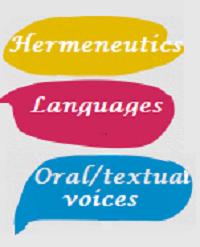
Arquivo para March 20th, 2025
Language and modernity
The philosophical disagreements and struggles at the end of the Middle Ages that marked the difference between realists and nominalists ended in a suppression of the importance of language, of the exercise of thought in a form of dualistic subjectivity, since it separates subjects from objects.
at the end of the Middle Ages that marked the difference between realists and nominalists ended in a suppression of the importance of language, of the exercise of thought in a form of dualistic subjectivity, since it separates subjects from objects.
It was partly due to the crisis of Western thought and partly due to the lack of a correct understanding of the importance of language that a linguistic “turnaround” began in the late 19th and early 20th centuries.
As is the case with all knowledge in modernity, this important turning point has also ended up being used as a metaphor in the philosophy of language, but its contribution both to contemporary thought and to understanding what kind of crisis we are experiencing is a broad and essential response: the word gives life to our actions and its meditation cannot be separated from its practice (see previous post).
There are those who prefer to date this turn to Ludwig Wittgenstein’s Logical-Philosophical Treatise (1889-1951) or, even later, The Linguistic Turn: Essays in Philosophical Method, which Richard Rorty published in 1967. He defended this creation to the thinker Gustav Bergmann, but also points to Heidegger as one of its founders.
The important thing is to verify both the dialogue between the turn and the new logical perspective of the Vienna Circle (with whom Wittgenstein maintained contacts) and the relationship with the philosophical hermeneutics born out of Schleiermacher (“on the different ways of thinking”), He was a contemporary of Schelling, Hegel and Fichte, and thus under some influence of German idealism.
Thus oral and textual language is translated into language and interpreted according to a hermeneutic (photo).
On the other hand, the philosophical hermeneutic approach that comes from Husserl, Heidegger and their successors (such as Hannah Arendt and Peter Sloterdijk) makes a deeper break and questions even the philosophy and thought of its time, with major gaps.
The living word is the one that leads us to concrete actions far from the individualism and lack of meditation (or contemplation) of modernity, it leads to concrete gestures of humanity.
make a deeper break and question even the philosophy and thought of their time, with major gaps.
The living word is the one that leads us to concrete actions – far from the individualism and lack of meditation (or contemplation) of modernity, it leads to concrete gestures of humanity.

